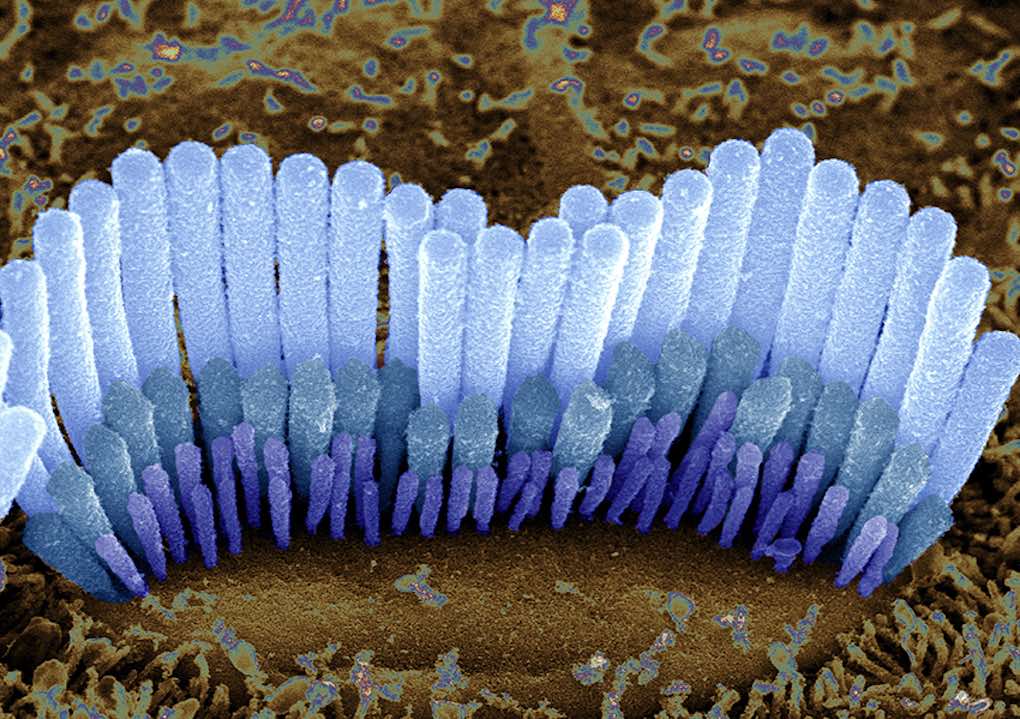- in Production by Bobby Owsinski
Hearing Loss Cure On The Horizon Thanks To Regeneration Of Hair Cells
If you’re over about the age of 40, you’re probably noticing that your hearing isn’t what it once was. It’s even worse if you’ve received any hearing damage through the years due to a high volume levels. That’s because we’ve damaged the hair cells in our inner ears, and the problem is, they don’t grow back. That may soon be a thing of the past however.

In a groundbreaking study, scientists at Harvard Medical School have made a significant stride towards a potential solution for hearing loss. This research, which could revolutionize the way we treat hearing impairment, focuses on the regeneration of hair cells in the inner ear, a feat previously thought impossible not only in humans, but in all mammals.
Hearing loss is an issue that’s much wider than you might think, affecting approximately 48 million Americans and 430 million people globally. The majority of these individuals suffer from what’s known as sensorineural hearing loss, which is a condition caused by damage to the inner ear and the destruction of its hair cells. These cells are responsible for transmitting sound to the brain, and their loss is currently irreversible in humans.
Unlike other cells in our bodies, hair cells in the inner ear can’t divide or regenerate, in stark contrast to other species like fish, birds, and reptiles that have the ability to regenerate these cells. As a result, hearing loss in humans, often caused by aging, noise exposure, and other factors, is permanent.
However, the team at Harvard Medical School, led by Zheng-Yi Chen, an associate professor of otolaryngology, has made a promising discovery. They have developed a cocktail of molecules that successfully regenerated hair cells in a mouse model. This was achieved by reprogramming a series of genetic pathways within the inner ear.
The researchers are hopeful that their findings, published in the journal PNAS (there’s a nice summary here), could pave the way for clinical trials for a gene therapy that could be administered to people with hearing loss. “These findings are extremely exciting because throughout the history of the hearing loss field, the ability to regenerate hair cells in an inner ear has been the holy grail,” said Chen.
In previous research, Chen’s team studied zebrafish and chickens to understand which pathways were responsible for inducing the cell division required to regenerate new hair cells. They discovered that two molecular signaling pathways were crucial to this process. In a 2019 study, the team showed that when these pathways were activated in adult transgenic mice, remaining inner ear cells could divide and develop characteristics of hair cells.
The newly formed cells contained the necessary transduction channels to relay sound signals and form connections with auditory neurons in the brain so the subjects could hear again. This new approach to treating hearing loss is a significant step forward in the field and brings hope to millions of people worldwide suffering from this condition.
Let’s hope that a byproduct of the treatment is a cure for tinnitus.
